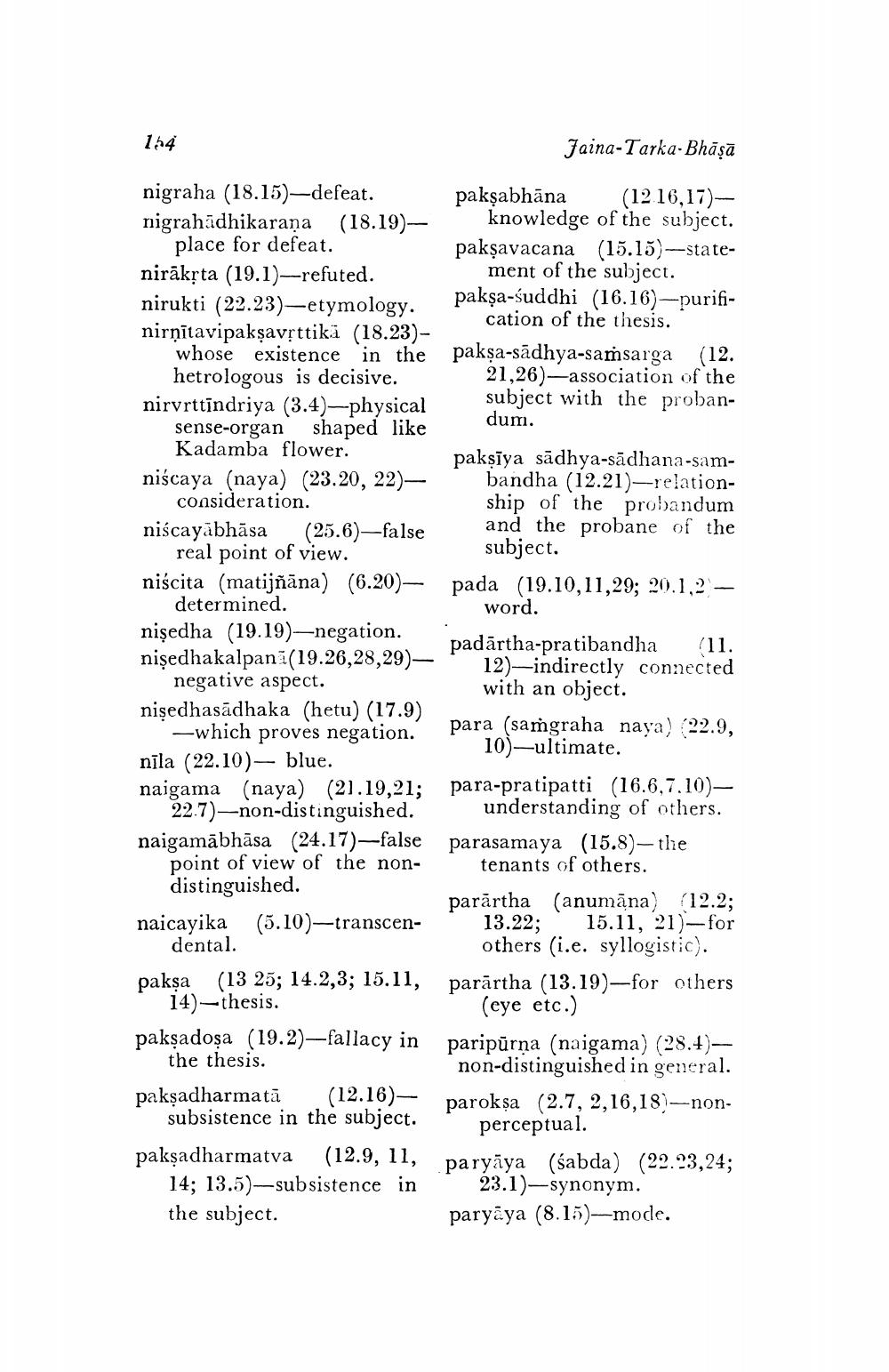________________
1.54
Jaina-Tarka-Bhāşā
nigraha (18.15)—defeat. pakṣabhāna (12.16,17)nigrahādhikarana (18.19) knowledge of the subject. place for defeat.
pakşavacana (15.15)-statenirākṣta (19.1)-refuted.
ment of the subject. nirukti (22.23)-etymology. paksa-suddhi (16.16)-purifinirņītavipakşavșttikā (18.23)
cation of the thesis. whose existence in the pakşa-sādhya-samsarga (12.
hetrologous is decisive. 21,26)-association of the nirvrttīndriya (3.4)--physical
subject with the probansense-organ shaped like
dum. Kadamba flower.
paksiya sādhya-sādhana-samniścaya (naya) (23.20, 22)— bandha (12.21)-relationconsideration.
ship of the probandum niscayābhāsa (25.6)—false
and the probane of the real point of view.
subject. niścita (matijñāna) (6.20)— pada (19.10,11,29; 20.1,2 – determined.
word. nişedha (19.19)—negation.
padārtha-pratibandha 11. niședhakalpani(19.26,28,29)—
12)-indirectly connected negative aspect.
with an object. nisedhasādhaka (hetu) (17.9) —which proves negation. par
para (samgraha naya) (22.9,
10—ultimate. nila (22.10) - blue. naigama (naya) (21.19,21; para-pratipatti (16.6,7,10)—
22.7)-non-distinguished understanding of others. naigamābhāsa (24.17)-false parasamaya (15.8) - the
point of view of the non- tenants of others. distinguished.
parārtha (anumāna) (12.2; naicayika (5.10)—transcen- 13.22; 15.11, 21)—for dental.
others (i.e. syllogistic). paksa (13 25; 14.2,3; 15.11, parārtha (13.19)—for others 14)—thesis.
(eye etc.) pakşadoşa (19.2)—fallacy in paripūrna (naigama) (28.4)the thesis.
non-distinguished in general. pakşadharmată (12.16)—
- parokșa (2.7, 2,16,18)-nonsubsistence in the subject.
perceptual. pakṣadharmatva (12.9, 11,
paryāya (śabda) (22.23,24; 14; 13.5)-subsistence in 23.1)-synonym. the subject.
paryāya (8.15)—mode.




